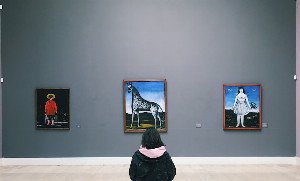Silvia Lelli
Margaret Mead: un percorso antropologico contemporaneo
Introduction
Margaret mead: un percorso antropologico contemporaneo. Esplora il percorso antropologico di Margaret Mead, la sua critica ai modelli sessuali come costruzioni culturali e l'impatto sul concetto di genere e studi femministi.
Abstract
This article deals with some lesser-known key points of Margaret Mead's unconventional pathways of life and work. She raised many transcultural issues regarding female and male sexes that are still relevant and continue to animate current academic and politicaldebates. Mead’s numerous ethnographic research projects were developed mainly in field studies in Oceania – Samoa, Papua New Guinea, Bali – between the 1920s and the 1950s. These studies were revisited until the 1970s, within the framework of the Nature/Culture entanglement, distinctive of the Culture and Personality School Mead belonged to. This article interfaces Mead’s early major works with biographical and autobiographical writings, providing an analysis of Mead’s transcultural cross-examination of differentforms of family and social relations, whose results show how the so-called «sexual models» are cultural constructions and not natural matters, as usually claimed in western societies. The deconstruction of the «naturalness» of sexual models was a starting point for the elaboration of the future concept of «gender», discussed in early and current Women Studies, Gender Studies and Feminist Anthropology. Mead sustained the possibility of changing the sex-based social roles and it raised conservative hostilities, but also a progressive consensus. Both in her scientific production and in her bisexually oriented life experience, as expressed in many letters she sent to her lover and professor Ruth Benedict, Mead’s aims were to disseminate new knowledge on human complexity. Mead wanted to make this knowledge understandable to everyone in order to eradicate stereotyped visions and attitudes, including the sexual binary barriers that in her view precluded a free development of individual potential.
Review
This article, "Margaret Mead: un percorso antropologico contemporaneo," promises a compelling and timely re-examination of Margaret Mead's multifaceted legacy, tracing her "unconventional pathways of life and work." The abstract effectively highlights Mead's pioneering contributions to transcultural issues concerning sex and gender, which remain profoundly relevant in current academic and political discourse. By focusing on lesser-known aspects and interfacing her extensive ethnographic research in Oceania – particularly Samoa, Papua New Guinea, and Bali – with biographical and autobiographical insights, the article sets out to provide a comprehensive analysis of how Mead's work within the Culture and Personality School contributed to understanding the intricate Nature/Culture entanglement. A central strength outlined in the abstract is the article's commitment to showcasing Mead’s foundational role in deconstructing the perceived "naturalness" of sexual models, demonstrating them instead as cultural constructions. This crucial insight is rightly identified as a precursor to the concept of "gender," a cornerstone of contemporary Women's Studies, Gender Studies, and Feminist Anthropology. Furthermore, the abstract promises to effectively interweave Mead's scientific contributions with her personal life, specifically her bisexually oriented experiences and correspondence with Ruth Benedict. This dual approach aims to illuminate Mead’s broader objectives: to disseminate new knowledge on human complexity, challenge stereotyped visions, and dismantle sexual binary barriers that she believed inhibited a free development of individual potential. The article thus positions Mead not just as an ethnographer, but as a transformative intellectual whose work elicited both conservative hostility and progressive consensus. Overall, the proposed article appears to be a valuable contribution to the history of anthropology and contemporary gender studies. Its strength lies in its holistic approach, integrating Mead's early major works with her personal narrative, thereby offering a nuanced understanding of her transcultural cross-examination of different forms of family and social relations. By foregrounding the historical trajectory of Mead's ideas – from the 1920s through the 1970s and their continued resonance today – the article is poised to enrich discussions on the cultural construction of identity and the ongoing evolution of gender concepts. This review anticipates that the article will not only reaffirm Mead's historical importance but also demonstrate her sustained relevance to pressing contemporary debates on human diversity and societal structures.
Full Text
You need to be logged in to view the full text and Download file of this article - Margaret Mead: un percorso antropologico contemporaneo from Archivio per l'Antropologia e la Etnologia .
Login to View Full Text And DownloadComments
You need to be logged in to post a comment.
Top Blogs by Rating
The Quiet Crisis: How Light Po...
By Sciaria
The Immortal Jellyfish: Unlock...
By Sciaria
CRISPR Beyond Genes: Programmi...
By Sciaria
Favorite Blog
The Indispensable Value of 'Us...
By Sciaria
The Algorithmic Whisper: How C...
By Sciaria
Ops Debt: Unmasking the Silent...
By Sciaria





